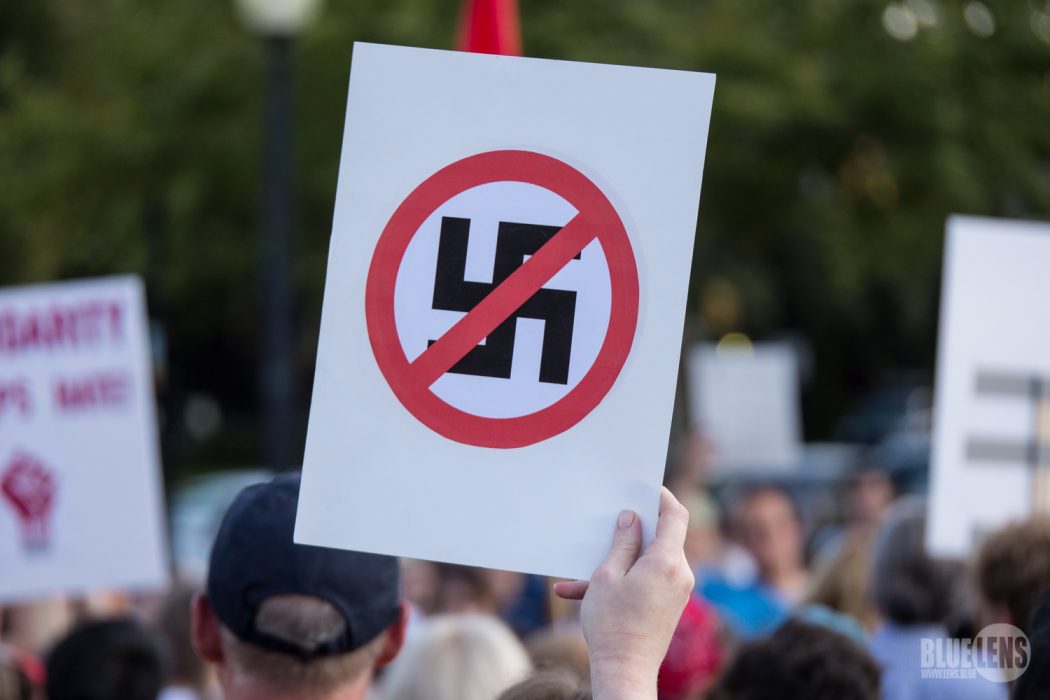To say that Donald Trump is a little bit of a divisive figure is like saying that Montreal winters are a little bit cold. At left-leaning university campuses like McGill, Trump’s stock is particularly low. It would not be hard to imagine a lively discussion taking place between two students that centres around Trump’s conduct as president. At the apex of the argument, one participant may heatedly shout at the other, “how can you support anything Trump does? He’s practically a Nazi!”
Really, a Nazi? Trump can certainly be a buffoon at times, and he may make divisive policy decisions, but he is certainly no Nazi. The frightening thing is, many people who call Trump a Nazi truly believe it, and seriously equate his actions with those of the most despicable and murderous regime in human history. Among the many Trump-is-a-Nazi takes is an article from the left-wing Israeli newspaper Haaretz, which compares Trump’s quarrel with mainstream news media to the Nazi practice of Lugenpresse. The term refers to the Nazi’s delegitimization of any opposition by painting them communist Jewish propaganda. The article does not explicitly call Trump a Nazi, but the implication is made abundantly clear.
It is not just Trump that has been dubbed a Nazi. Other foreign politicians, like Vladimir Putin, have been labelled in a similar way. Don’t get me wrong, Putin is an evil and deplorable human being. He certainly deserves to be vilified, but he is still not a Nazi.
Perhaps one of the most ridiculous manifestations of this phenomenon occurred when Stephen Schwarzman, the head of Blackstone investment firm, was called a Nazi for serving on a business council that advised Trump. Schwartzman happens to be Jewish, so I am not sure how well he will fit in with all the other Nazis at school.
Our overuse of the world presents a tangible threat to our ability to distinguish between true Nazis and those whom we rashly and preposterously describe as such
Language influences the thoughts and actions of individuals — it matters what words we decide to use. Certain terms have real power. These phrases are meant to evoke strong emotions and provoke passionate discussion. “Nazi” should be one of these terms. It should elicit disgust, fury, revulsion, fear, and perhaps guilt. It should remind the listener of the terrible crimes committed by those monstrous individuals, and encourage that same listener do their utmost to prevent such murders from occuring again. However, the word Nazi has been overused to a point where it has come to mean and accomplish nothing.
Disturbingly, our penchant for labeling others as Nazis has inhibited our ability to call out true Nazism -or fascism — when it presents itself. There are Neo-Nazi parties in many European countries, like the National Democratic Party of Germany and the Freedom Party of Austria. It’s shocking they even receive votes, as they do every election cycle. While these contemporary parties do not wield nearly the same power as the original National Socialist Party, they hold the same ideals as their predecessors. Politicians that make no attempt to hide their Nazi tendencies experience relatively little backlash from the world at large. Why bother with real European Nazis if there is an imaginary Hitler sitting in the Oval Office? In this way, our overuse of the world presents a tangible threat to our ability to distinguish between true Nazis and those whom we rashly and preposterously describe as such.
All in all, the greatest injustice wrought by our proclivity to use Nazi so indiscriminately in modern discourse are the actual survivors of Nazi horrors. They truly know what National Socialism means, and the tattoos on many of their arms are a testament to the horrendous suffering they endured at the hands of Nazi cruelty. Everytime we call someone we simply disagree with a Nazi, or inappropriately assign that label to a political figure, we unforgivably insult and belittle the experiences of those who endured the horrors of the Holocaust. Through our careless speech, we soil the memories of those who unjustly perished.
There is only one specific meaning to the word Nazi. The term Nazi refers only to German National Socialists and their allies. It denotes those who joyfully and callously sent Jewish victims, among others, to be slaughtered, all the while clothed in pristine uniforms and false sophistication.
The Nazis were, and remain, the ultimate representation of inhumanity. Today, anyone who subscribes to their ethnocentric, racist, and brutally anti-Semitic ideology is a Nazi. Anyone who idolizes Hitler, Eichmann, and Goebbels is a Nazi. Everyone else is not — period.


